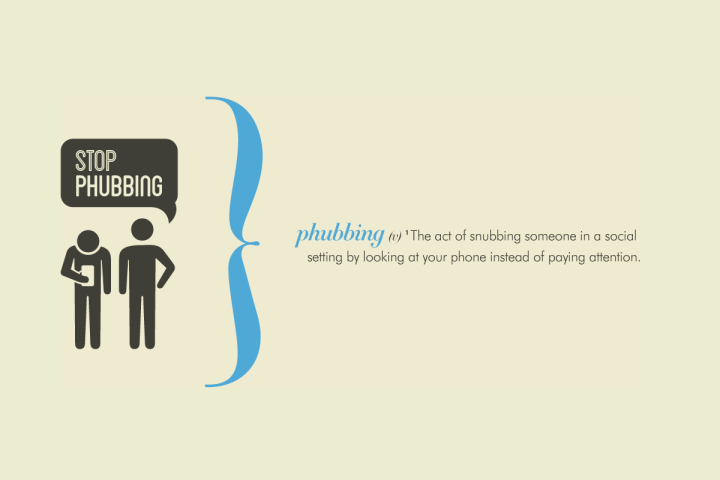
According to new research, the act of phubbing, or phone snubbing, is a very real epidemic in the United States, and aside from being rude and inconsiderate, may also come with a few more insidious results.
As per results published in the journal “Computers in Human Behavior,” not only can ignoring your partner in favor of your phone damage your relationship, it can also lead to depression and lower rates of overall life satisfaction for the, um, phubbee. So put down your phone and start paying attention to the people sitting right next to you.
In conducting their research, Professor James Roberts of Baylor University’s Hankamer School of Business and his team surveyed 453 adults across the country in two separate experiments. In the first, 308 participants were asked to identify “phubbing” behaviors, asking respondents questions like, “My partner places his or her cellphone where they can see it when we are together,” and “My partner glances at his/her cellphone when talking to me.” The answers to these questions helped researchers develop a 9-item scale indicating the occurrence of phubbing.
The second experiment, which involved 145 adults, delved deeper into phubbing’s effects, as couples were asked to identify which of the behaviors they’d experienced within their relationships, and then how secure they felt in their relationships, how satisfied they were, and how anxious and/or depressed they felt as a result of their partners’ behaviors.
In a rather “well duh” sort of conclusion, Roberts found that “when people perceived their partners to be phubbers — they spend more time paying attention to their phones — that created conflict in the relationship.” What is surprising, however, is the frequency with which this sort of behavior occurs. According to survey results, 46.3 percent of respondents said they’d experienced phubbing at the hands of their significant other, and 22.6 percent admitted that phubbing led to problems in the relationship.
And even if it’s as seemingly inconsequential as looking down at your phone every once in a while, study results suggest that these few seconds start to weigh heavily on your partner’s mind, eventually contributing to an overall feeling of dissatisfaction, or perhaps inadequacy, within the relationship.
In an interview with Yahoo Health, Roberts noted, “We found that the ones that reported higher partner phubbing fought more with their partner and were less satisfied with their relationship than those who reported less phubbing.” In fact, 37 percent of survey respondents said they felt depressed at least some of the time, and much of this, authors believe, can be attributed to our collective addictions to our phones.
If you’re curious as to whether you or your partner is guilty of phubbing, you can try to answer the following questions used in Roberts’ study. But be warned, you may not like what you discover.
- During a typical mealtime together, my partner pulls out and checks his/her cellphone.
- My partner places his or her cellphone where they can see it when we are together.
- My partner keeps his or her cellphone in their hand when he or she is with me.
- When my partner’s cellphone rings or beeps, he/she pulls it out even if we are in the middle of a conversation.
- My partner glances at his/her cellphone when talking to me.
- During leisure time that my partner and I are able to spend together, my partner uses his/her cellphone.
- My partner uses his or her cellphone when we are out together.
- If there is a lull in our conversation, my partner will check his or her cellphone.
And if this makes you angry enough to join a movement, check out stopphubbing.com, where you’ll find fascinating information not only on phubbing and its effects, but also on how to put an end to the pandemic.
Editors' Recommendations
- What the green and orange dots on your iPhone really mean
- What iPhone do I have? How to find out your iPhone model number
- Your Verizon plan just got a major overhaul — here’s what’s new
- Your Apple Card will soon get its own savings account – here’s what it looks like
- You’re ruining your iPhone 14 Pro if you turn off the always-on screen


